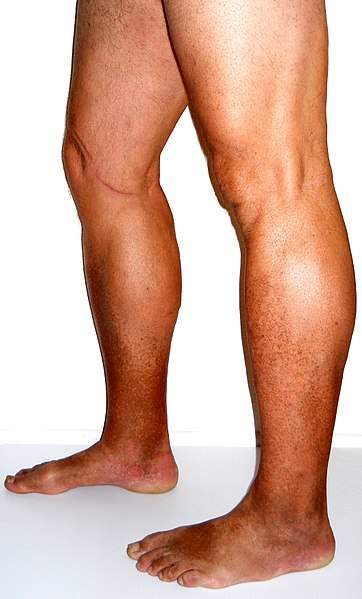Bioprosthetic medical devices company Hancock Jaffe Laboratories has secured approval from the Medical Research Committee at Fundación Santa Fe de Bogotá (FSFB), in Bogota Colombia for its first-in-human testing of its VenoValve bioprosthetic medical device.

Image: VenousInsufficiency. Photo: Courtesy of James Heilman/Wikipedia.org
The company previously received approval from the FSFB’s Ethics Committee.
Hancock Jaffe will now begin gathering the information necessary to submit an application for approval to Instituto Nacional de Vigilancia de Medicamentos y Alimentos (INVIMA), which is the Colombian equivalent of the US Food and Drug Administration.
INVIMA approval is required to import investigational medical devices and conduct human clinical trials in Colombia.
Hancock Jaffe is developing the VenoValve to treat severe cases of Chronic Venous Insufficiency (“CVI”). CVI occurs when the valves within the deep venous system of the leg are injured or destroyed, causing blood to pool in the lower extremities. CVI may result in swelling, debilitating pain, and skin ulcerations.
Practitioners rate the severity of chronic venous disease based upon a system called Clinical-Etiology-Anatomy-Pathophysiology (CEAP), a rating system of C0 to C6, with C4, C5, and C6 being patients with the most severe pathology.
Approximately 4.5 million people in the US suffer from severe CVI and the condition results from between 400,000 to 700,000 hospitalizations per year. There are currently no FDA approved treatments for deep venous CVI.
Source: Company Press Release
